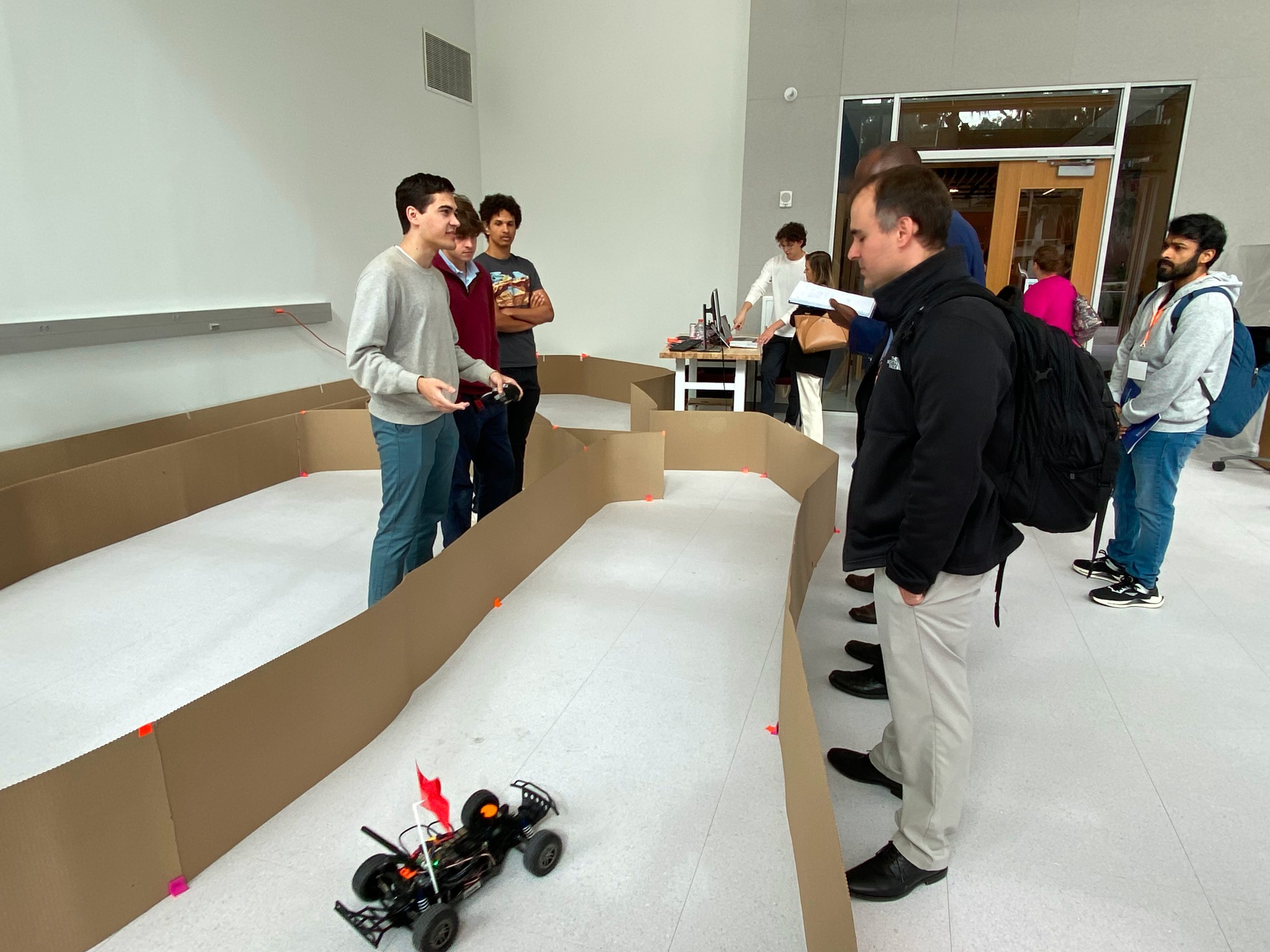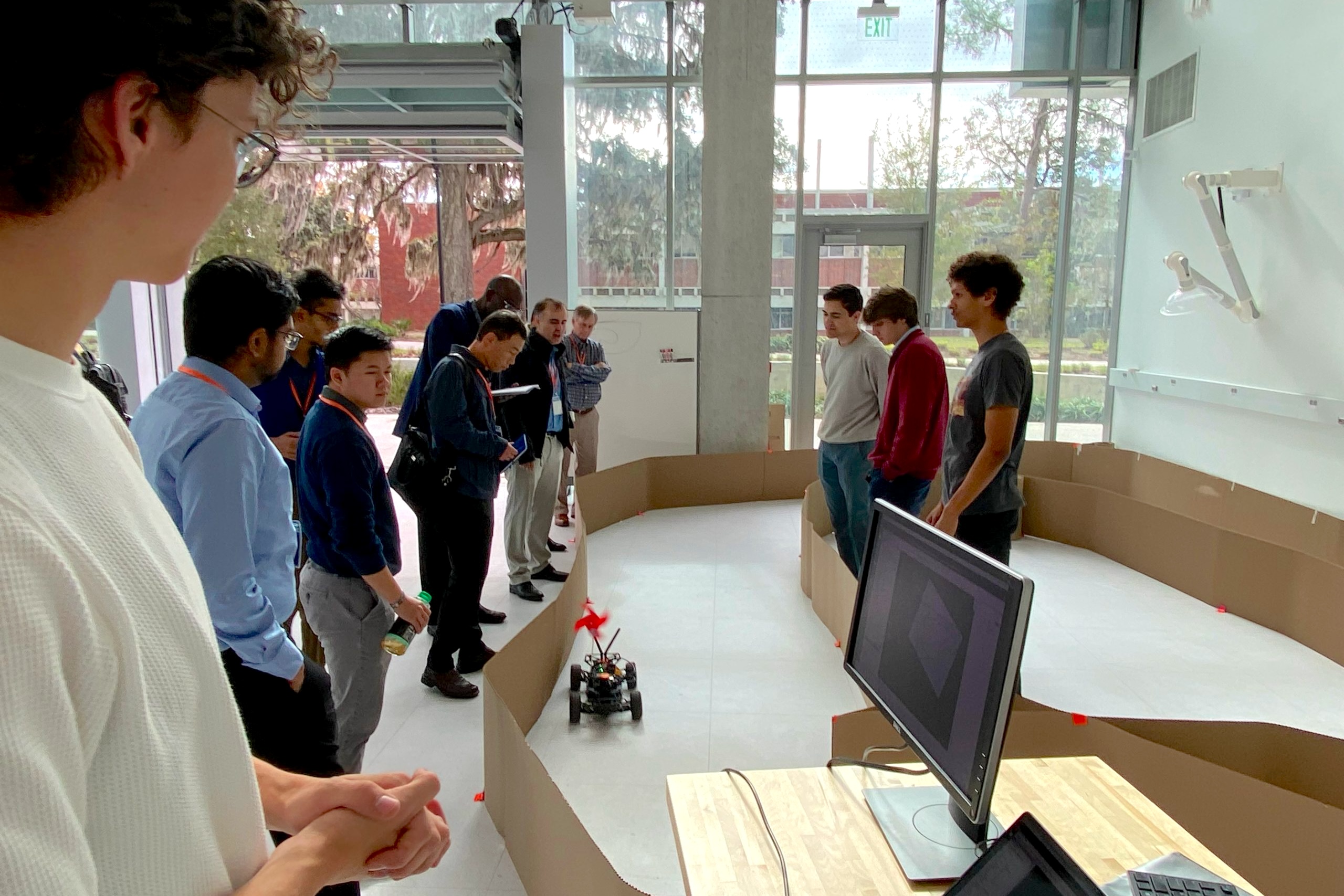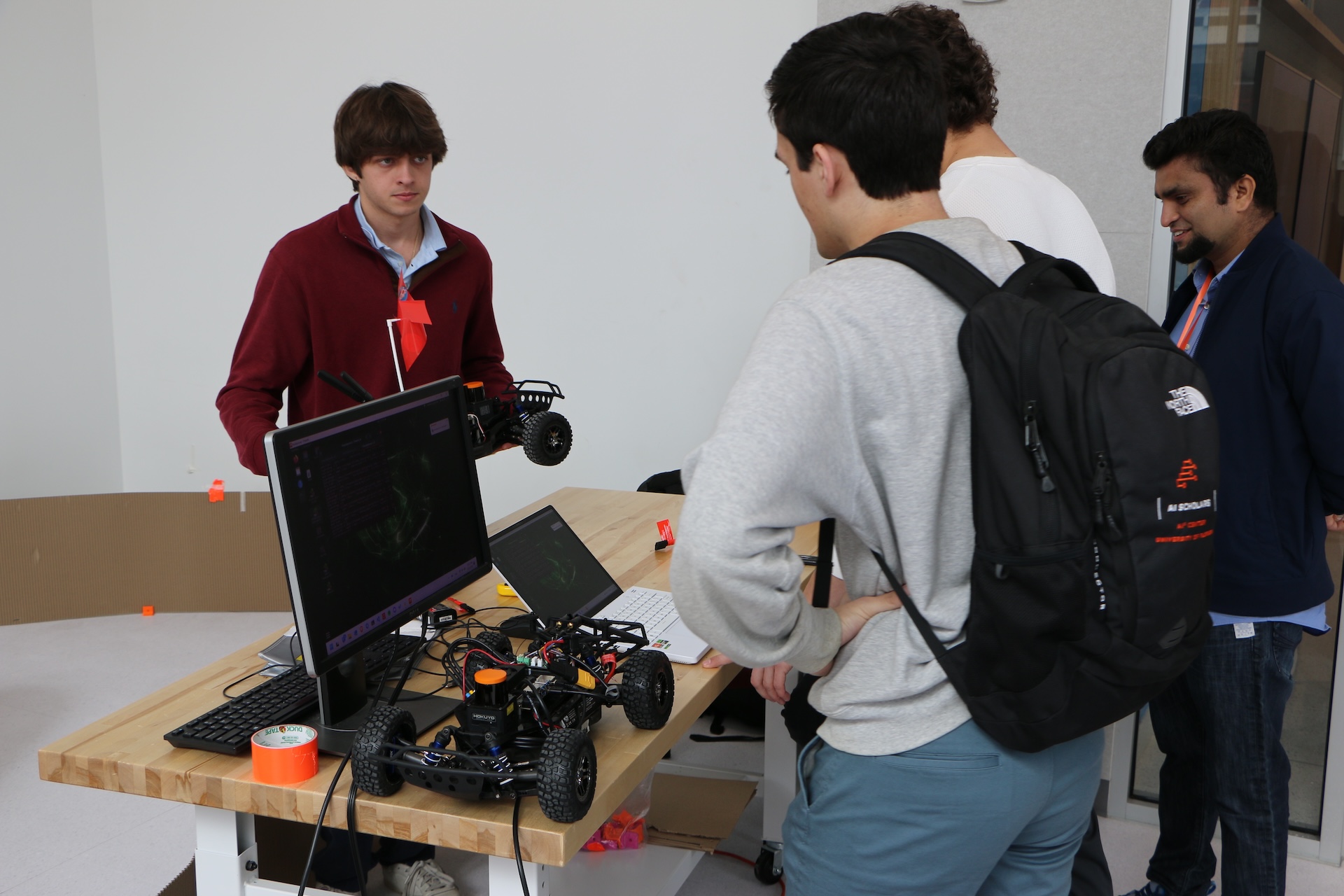The Warren B. Nelms Annual IoT Conference was held on December 5-6, 2024 at the University of Florida campus. The two-day conference featured student demo and poster competitions, showcasing innovative projects on a variety of Internet of Things (IoT) topics. Among the 25 student demos, “F1Tenth Autonomous Driving” was selected for the Best Demo Award by industry and government judges.

The project was presented by Christopher Oeltjen, Carson Sobolewski, and Lorant Domokos, students in Dr. Ivan Ruchkin’s lab. The team’s demo highlighted the capabilities of an F1Tenth car, a one-tenth scale autonomous race car. The F1Tenth car can autonomously navigate and map a non-predetermined track, subsequently identifying the optimal racing line and following it with precision.
With this project, researchers are exploring the integration of cutting-edge robotics, machine learning, and autonomous control systems to create robust, safe, and efficient autonomous systems for small-scale vehicles, specifically focusing on RC (radio-controlled) cars.
“Overall, our goal is to improve the racing capabilities and overall safety of autonomous vehicles through the F1/10 platform,” explained Oeltjen.
The potential applications of this technology extend beyond the racetrack to real-world autonomous driving and transportation systems. However, one of the primary challenges is ensuring reliability and safety in previously unseen and unknown environments.
“We are still finding an algorithm that works best for scenarios where the track is unseen and unmapped,” Oeltjen said. “The difference in performance between when the track is mapped versus when the track is unseen is very noticeable.”
When the track is known, it’s possible to generate optimal race lines for the car to follow. When the track is unknown, the car must navigate the track very slowly and carefully.
The insights and advancements from the F1Tenth Autonomous Driving project hold promising implications for the future of autonomous vehicle technology, contributing to the Nelms Institute’s ongoing efforts to make autonomous systems more reliable and efficient.


